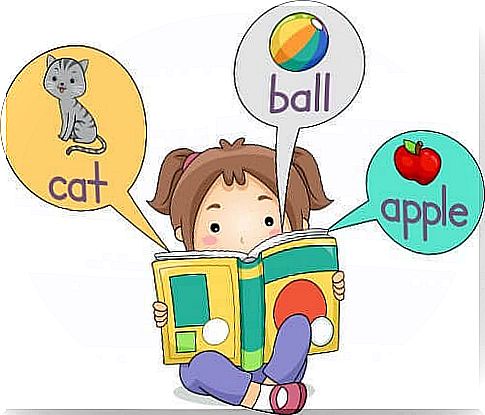Learn English At Home – I’m A Mom

As a teacher and author of the book Aprender inglés en casa (Learning English at Home), this is exactly one of the questions families ask me most often. My answer is always yes. Your children can learn English at home if you follow some simple tips and use the resources that are at your fingertips.
Is it possible to learn English at home?
Thanks to more than 20 years of experience teaching English to children and adults, I was able to see that teaching English in isolation, as just another subject, does not work because children need to make sense of what they are doing.
Otherwise, the English presented alone does not interest you. Instead, if we give it a use and a context, they will learn much more quickly.
In fact, many of us have spent years studying and memorizing vocabulary to an acceptable level. In fact, no one can deny that the older we are, the harder it is to learn a new language. For children, learning vocabulary lists or repeating phrases only makes them bored and not progress.
Today, our children have a great opportunity that we can take advantage of. In this case, the opportunity to learn English from an early age, without stress, without studying, almost without realizing it. And, above all, they can do this at home, regardless of our English level.

That is why, as parents, we must be aware that we cannot miss this opportunity that will make our children learn effortlessly. In this way, many doors will be opened in personal and professional terms.
Why is it better to learn at home?
- Children learn naturally. For starters, at home, children can learn naturally through routine, play and their favorite music.
- Therefore, if English is introduced whenever possible, it will naturally be incorporated on the one hand and, on the other hand, children will not even notice that they are learning a new language.
- They learn while having fun. As mentioned, by incorporating English into their favorite activities, our child will learn while having fun, which will greatly facilitate the acceptance of the new language.
- They don’t feel forced. Also, at home, children don’t feel forced because they don’t see English as an obligation or a school subject. They simply include it in their daily routine with complete naturalness.
- They don’t feel embarrassed. Likewise, young children are not afraid of making mistakes. By being in a safe and secure environment, they will feel much freer to try to speak, as well as to build sentences or incorporate vocabulary.
How can I help my children learn English at home?
- Listen to English. Try to make your children listen to English whenever possible. Everything works: radio, television, children’s songs… Even if they are very small or seem not to be paying attention, the fact of unconsciously listening is already helping to learn.
- Stories, songs and games in English. Use any opportunity to explain a story in English, sing songs in English, or play in English. Currently, through the internet, we have many resources at our fingertips.

- Devices in English. If children use tablets or electronic games, have them used in English.
- Routines in English. Take advantage of the daily routines to introduce English. Bathtime, mealtime, bedtime… Any occasion can be useful.
- Speak in English. Find opportunities for your children to speak English with native people. There are many options: from traveling to another country, to hiring an au-pair or looking for people nearby who speak English.
What if my English level is not very good?
As you can see, all the activities I propose for children to learn English at home can be done regardless of whether the parents speak English or not. By the way, if your parents’ level is not very good, you can also take the opportunity to improve your English.
However, if one of the two parents has a good level of English and decides to speak to their children in that language, so much the better. In this case, we would already be talking about a bilingual creation.
Thus, it is clear that the level of parents does not have to be a limitation for children to learn the language at home. Simply, it is about being clear about our purpose and seeking all the resources at our disposal. After all, we simply must remember that, in the future, our children will thank us.









